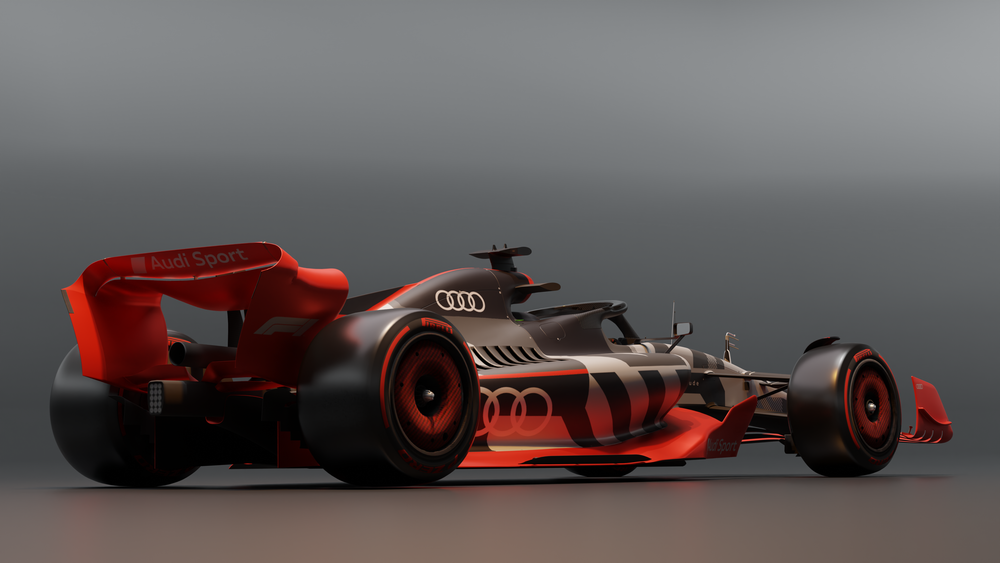It is fair to say that Audi's journey towards its official Formula 1 debut in 2026 has not been as smooth as it would have hoped.
Having already taken over a Sauber team that was below par in competitive terms, and behind the ballpark when it came to infrastructure, technology and head count, things have not been helped by what has appeared to be a fair share of politics and upheaval too.
Last year this culminated in the departure of Sauber CEO Andreas Seidl and Audi's chief representative Oliver Hoffman amid suggestions of a power struggle between them.
And when their ultimate replacement, CEO Mattia Binotto (now head of the F1 project) arrived, he was far from overawed by what he found.
As he famously remarked in an interview we did at last year's Abu Dhabi Grand Prix: "When I came in there was not only zero points, but really even no plans nor developments. And that's what concerned me the most."
Fast forward six months and Binotto's brow is not quite as furrowed. He even dares to suggest that he is finally having some fun again in F1.
"I'm enjoying, enjoying a bit more at the moment, which is great," he tells The Race in an exclusive interview.
"There have been steps which have been made, going in the right direction, which has given internal credibility to the project.
"People now first realise that we do have the resources, the budget, to make things, to improve tools, to hire people, and I think that's creating certainly a different mindset and spirit inside the team."
A changed team
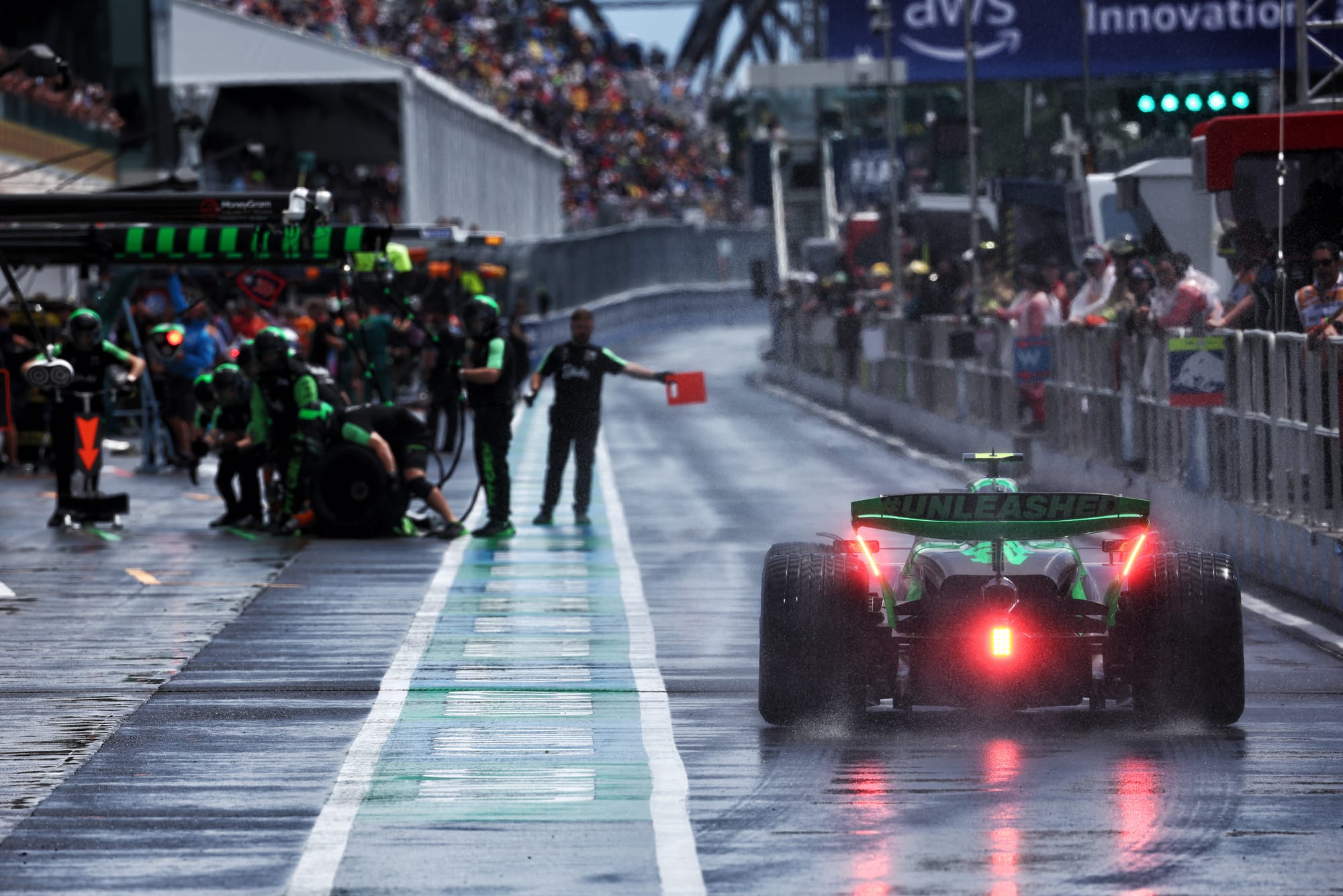
Sauber is certainly a world away from where it was 12 months ago. Back then it was nailed to the bottom of the constructors' championship, and it failed to score any points until the Qatar Grand Prix - round 23 out of 24 at the start of December.
Now, after Nico Hulkenberg added a healthy dose of points to the 2025 tally with fifth place at the recent Spanish GP, Sauber is eighth in the standings – ahead of Aston Martin and Alpine.
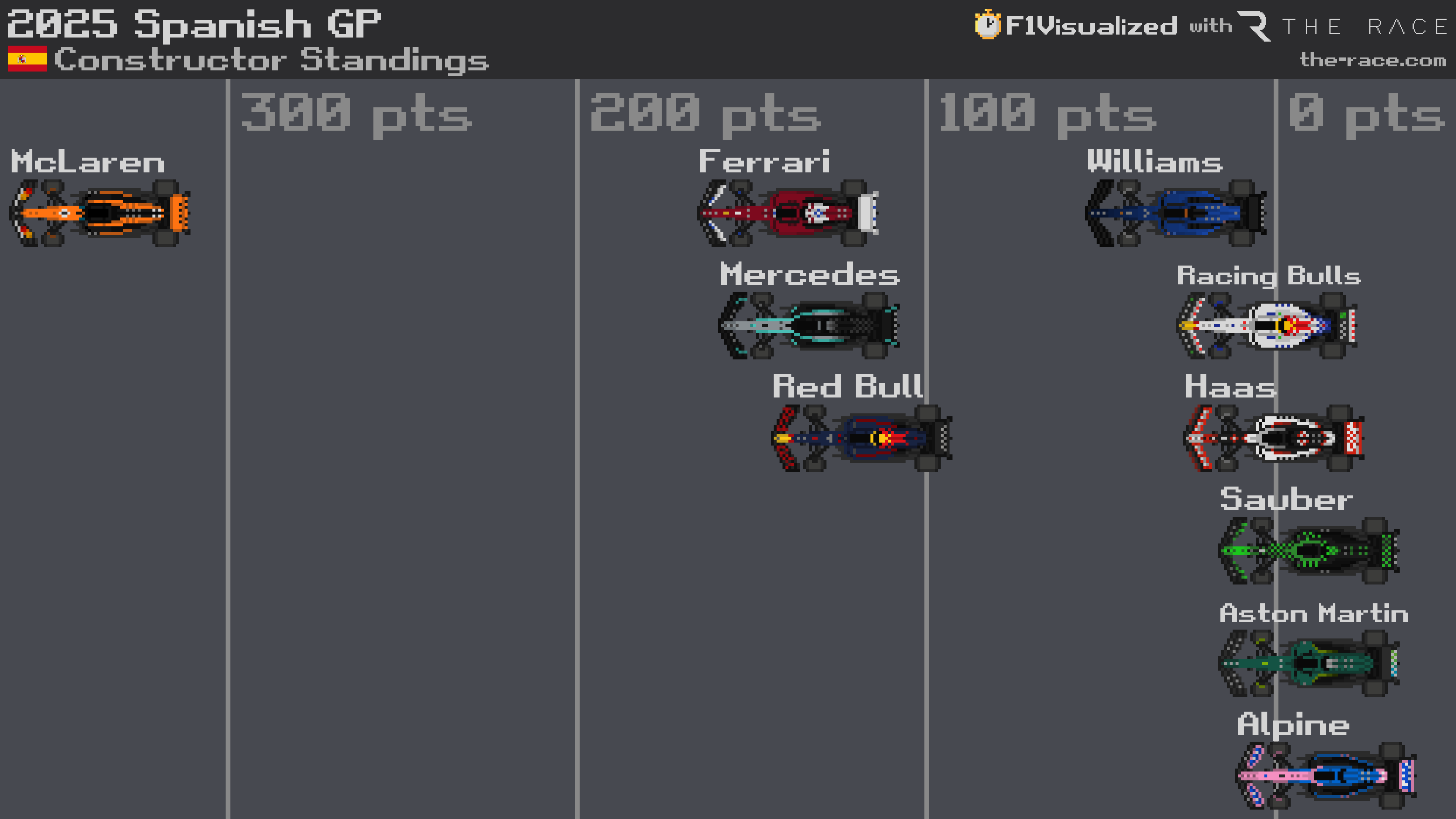
On pitstops, an area which new team principal Jonathan Wheatley suggested offers a public snapshot of ultimate potential, it is operating in a different world too.
From the botched stops that marred the start of its 2024 campaign, it has set the best times out of everyone at two races this year (Miami and Spain) and lies third overall in the DHL Fastest Pitstop standings behind Ferrari and McLaren.
At its factory, while the team is aware that some of its infrastructure still needs work – like the correlation processes between its windtunnel, simulator and track – some aspects have moved on a lot.
There has been a lot of recruitment over the winter, with about 150 more people hired. This has been helped by changes to the financial regulations for 2026 that allow for adjustments based on cost of living in the country a team is based in. It is also establishing an engineering hub in the UK as part of its expansion.
Investments have been made towards a new simulator, and an evaluation process has begun on a revamp of its Hinwil facility to make it better suited for F1 – although that is a project that could take two to three years to reach fruition.
The biggest change though from Binotto's perspective is not one that can be seen as a physical thing; it is one of attitudes and belief.
Asked about the largest difference you'd see evidence of in Hinwil, he said: "I think the first thing you will feel is the energy.
"You will not see a new building in three months or six months, you will not see a new simulator, because all that type of infrastructure and investment will require time."
Progress has also been accelerated by the arrival of new team principal Wheatley from Red Bull – with Binotto saying the pair of them are instantly aligned on what needs to be done.
"His help is huge thanks to not only the competence and skills, but the big experience he has," he explained.
"We both have had a parallel path into F1, very similar experience, racetrack, mainly, I think we have the same understanding on what's about. We have the same understanding of what's required and where the gaps are.
"So we even do not discuss much between us, because I think it's really one world that we understand."
A new mentality
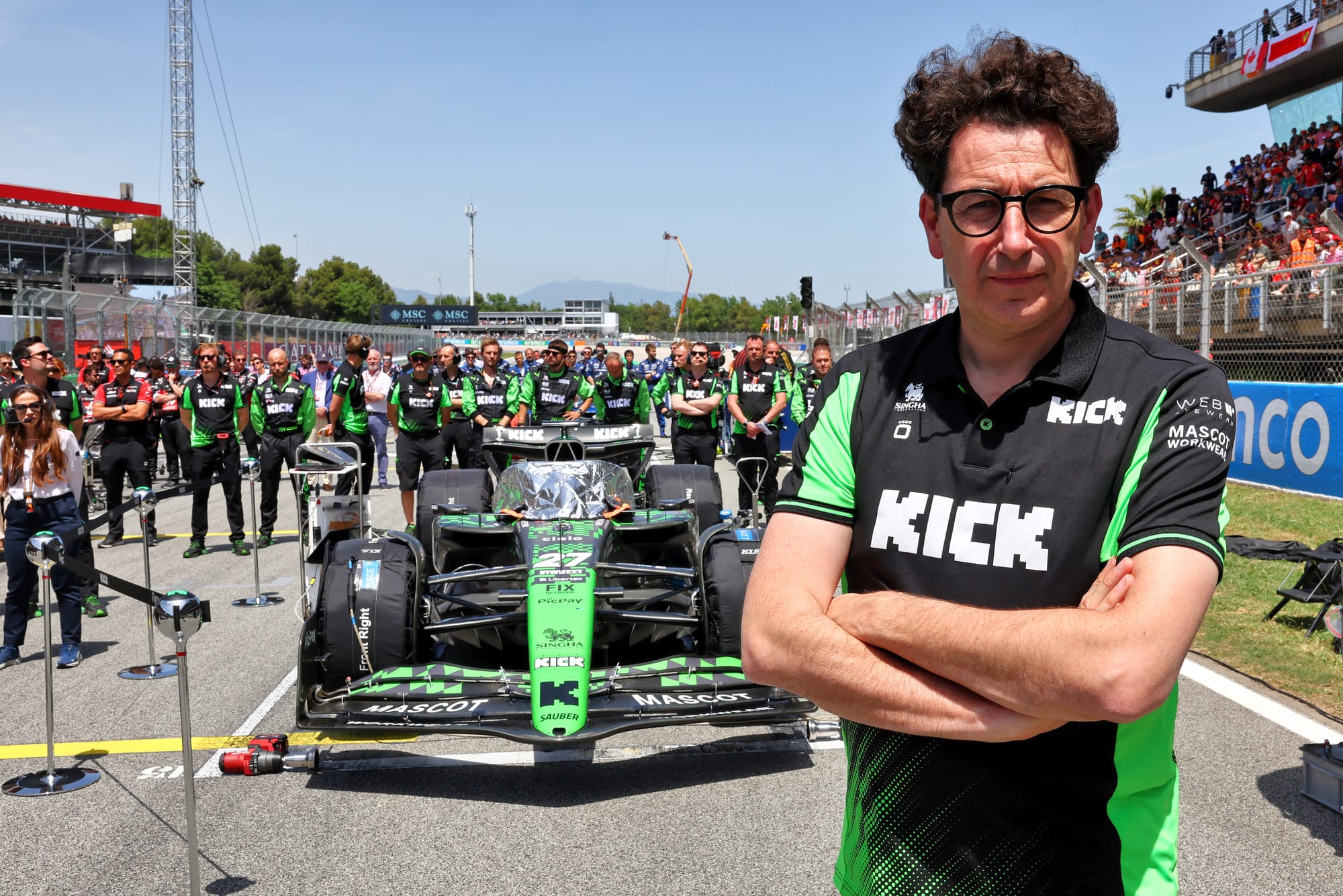
While Binotto has had to work hard to sort out the immediate competitive difficulties that Sauber faced, he knows well too that the biggest challenges are ahead.
For beyond delivering improvements to the Sauber team itself, he is going to have to plot the merging of the Hinwil-based operation with Audi so that it operates as a cohesive unit.
"[We want to] create really the one team, the one team spirit and the one team sense," he said. "At the moment, it's two different companies, two different sites, and two different locations."
Integration means lining up the different kinds of mindsets that come from independent teams and manufacturers – a merger that has not always produced the best results in the past.
The potential for corporate meddling was one of the reasons that Red Bull rolled back from doing a deal with Porsche for 2026 and instead chose to build its own engine.
Binotto does not believe that manufacturer involvement in F1 teams is necessarily a bad thing, as it is also a means of getting things done.
"I don't think it's a matter of making it more difficult," he said. "It's a matter of turning it into an advantage, because at the end, a big corporate like Audi can certainly support our projects, because there is a lot of resources.
"Whenever they decide that something needs to be achieved, they will put everything in place that's achievable."
While getting the cohesiveness will not be as straightforward as it was for Binotto when he was team boss at Ferrari, with engine and chassis departments within walking distance of each other there, he does not see the distance between Hinwil and Neuburg being a barrier to success.
"There are teams which are proven that you can win, having an engine in Japan, and a chassis in England," he said in a clear reference to Red Bull's success with Honda. "So I don't think that's an obstacle.
"Certainly the closer you are better it is. But as I said, there are things that have proven that is not necessary. So instead, it's only for us three and a half hours drive. So we are pretty close.
"At the end, it's the same company. We have teams producing both chassis and the engine. So myself feeding both organisations should give us an advantage."
The politics question
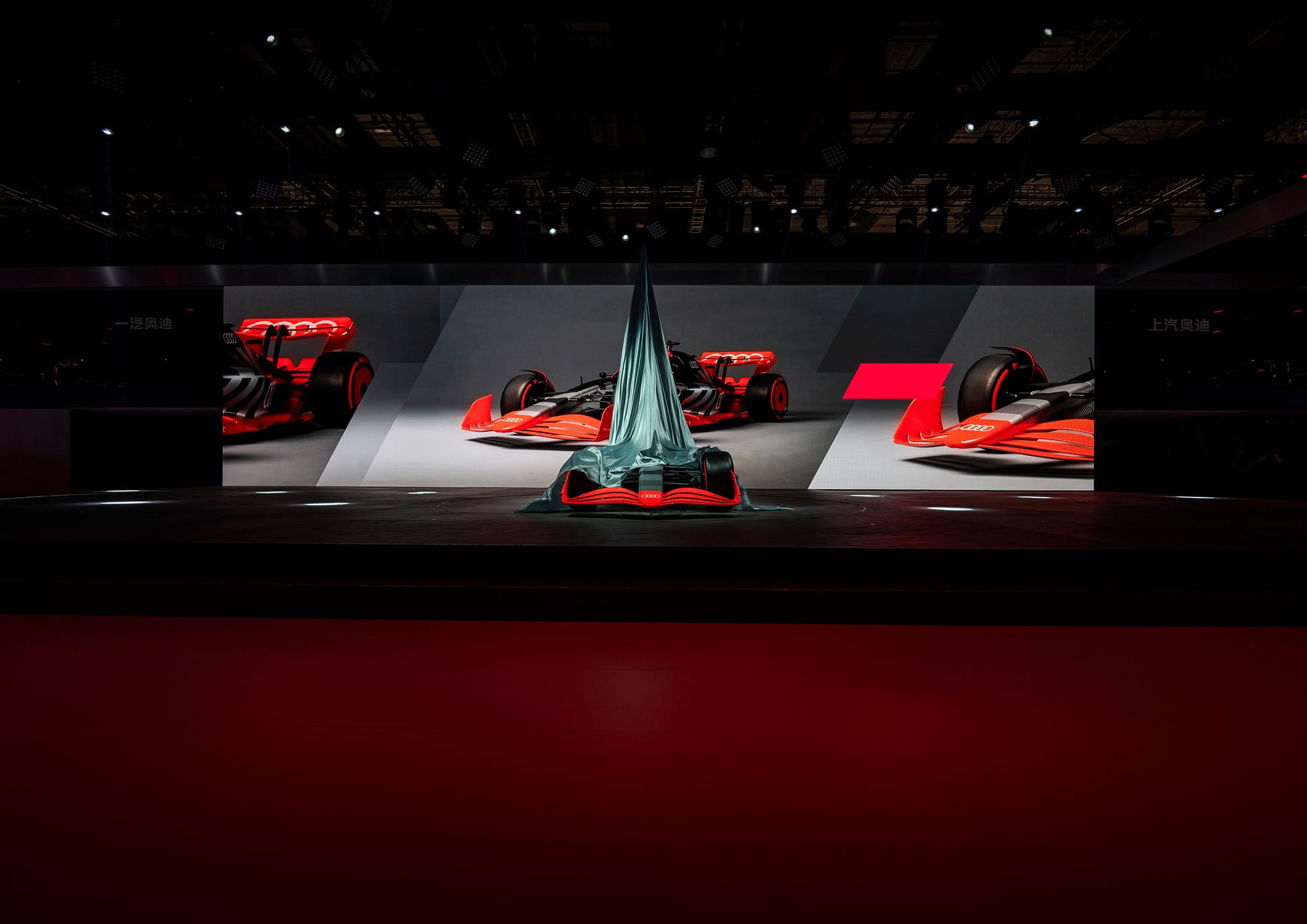
The series of senior management changes at the team over the past 12 months has inevitably triggered a perception that the Audi operation has been over-run by politics and power battles.
But while certainly some elements of that were true when it came to Seidl and Hoffmann, Binotto does not see things as simplistic as changes being the sign of an organisation in trouble.
Instead, he thinks it is a strength that, if wrong decisions have been made in terms of structure or what individuals are doing, then action is taken to address this rather than ploughing on blindly.
"I think it would be so great that you do everything right since the very start," he reflected. "That is true in any business.
"I think our task is to make the right decisions each time we take a decision. If you can make it even earlier, that would be great. But sometimes it takes time to get to what is the right decision, because as well, sometimes you need to evaluate."
He thinks it completely normal for a team setting out in F1 for the first time to change and evolve as it better understands things.
When asked if the politics had held the squad back, he replies: "You call it politics - I would not call it politics.
"I think it's very normal that a young organisation is changing roles and positions at the start of its journey.
"What is most important first is to decide and finalise what are the leads of the projects.
"And then after, it's really looking into the internal organisation and continuously improving it.
"So it's not about getting rid of people. It's about adding people that may increase the quality of the whole organisation.
"If I look back as well to my past experience, when I started [with Ferrari] in '95 and when we have won in 2000, many people changed."
From Binotto's perspective, one of the critical things needed was to merge the Audi and Sauber leadership structures – so it became one system and not just a chassis maker and engine supplier.
He says this was the trigger for the most recent management change that involved the departure of Audi's F1 engine chief Adam Baker last month.
The bumpy road ahead
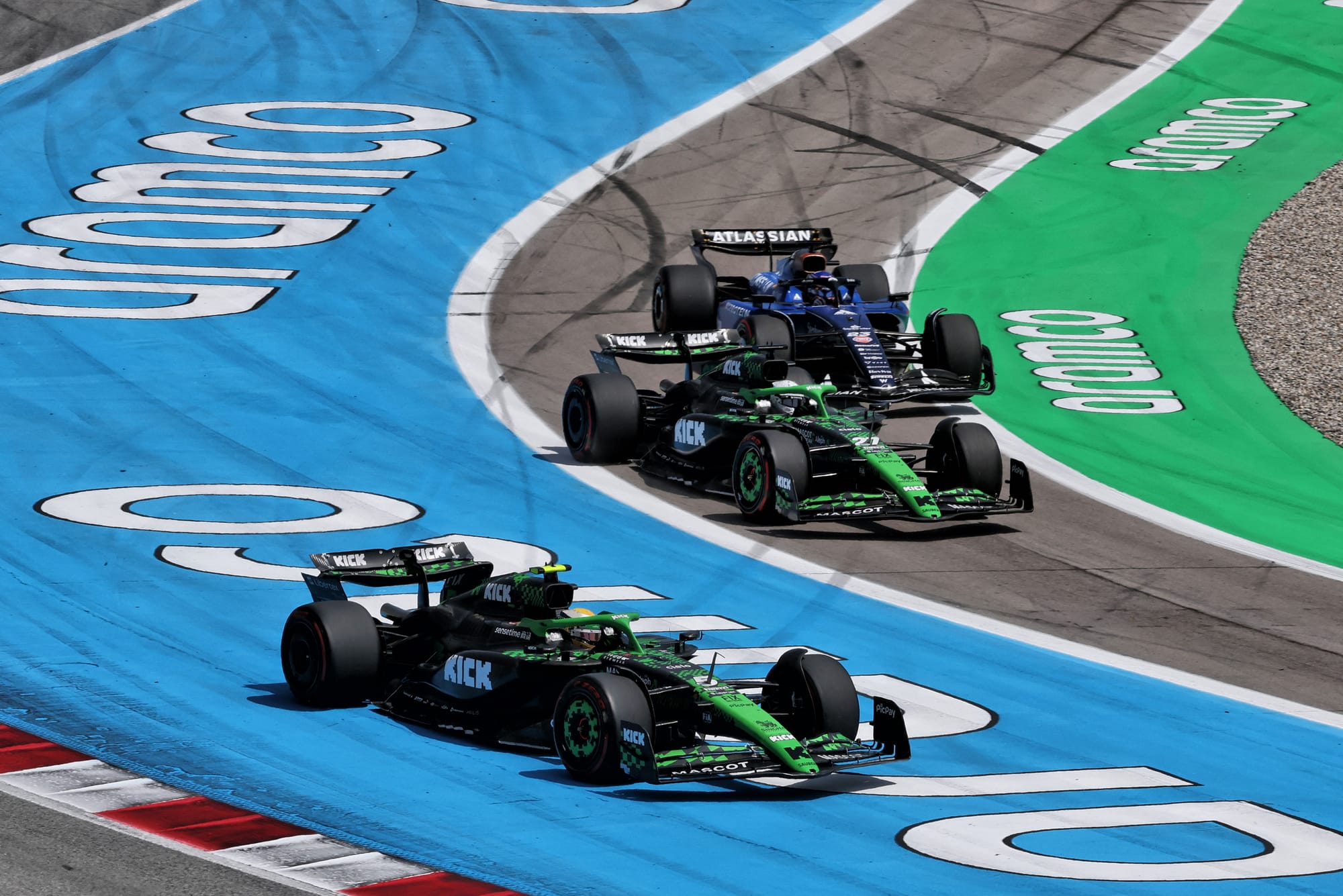
While Binotto is "convinced" that Audi now has the structure in place it needs for 2026, as well as a team that is moving forwards, he is not pretending it is mission accomplished.
In fact, he accepts that the world will be different next year – as the attention and expectation on his squad will be much bigger when it becomes Audi.
"I know once there will be the Four Rings on the bodywork, the pressure will rise, and not only external, the fans, but certainly as well the internal pressure," he said.
"Then it's really about the brand reputation and brand performance. So we are training our muscles today because we know we'll be in the fight for next year."
But despite knowing that expectations will be different next year, there is no suggestion that the result will be a dramatic step forward from now.
There is huge uncertainty about how the competitive picture will shake out next year for each of the engine manufacturers – with nobody sure exactly where they will end up.
But, in perhaps the clearest indication yet of where Audi thinks its progress level stands, Binotto is leaning towards it being a more challenging campaign than a successful one.
"The power units are such a big change, such a big challenge," he said.
"For Audi, for the very first time in F1 doing their own power unit, it's a completely different type of exercise compared to what we were used to. I think, in terms of level of competitiveness, in terms of technology, it is so different.
"We are [going] through our learning phase at the moment, so I'm not expecting that will be the best power unit in 2026.
"I think we may face even bumpy periods on reliability and performance. But that, I would say, it's not unexpected. That's normal when you raise your competition level and your objective.
"So again, our objective is winning in 2030 and our objective is to have the best power unit in 2030. And here I think we've got a good plan in place."
He added: "The team in Neuburg is very motivated. Audi has invested in the right infrastructures. We've got all the dynos which are required, and all the means.
"So I think whatever will be 2026, which we cannot judge now, we know that for us, we are far from where we believe we would like to be.
"But again, I don't think that will be a defeat at all. I think it's simply the start of our journey. It will be a first step into our 2030 objective to become champion."
Sauber may have come a long way since Binotto arrived to get the Audi operation in shape – but there is still a very long way to go before it is where he wants it.


